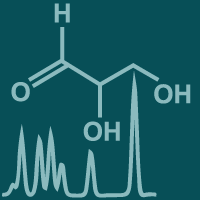Topic Editors


2. Associate Laboratory for Animal and Veterinary Sciences (AL4AnimalS), 5000-801 Vila Real, Portugal
3. Veterinary Sciences Department, University of Trás-os-Montes e Alto Douro, 5000-801 Vila Real, Portugal
New Perspectives on Metabolism and Metabolic Disease in Wildlife, Domestic, and Exotic Pets and Livestock
.jpg)
Topic Information
Dear Colleagues,
Metabolic processes are fundamental to animal health and productivity. They encompass the biochemical reactions that sustain life, including energy production, growth, and reproduction. Recent advancements in animal science have provided new insights into the complexity of these metabolic pathways and their implications for animal health. One significant area of focus is identifying and understanding metabolic diseases, which arise when these processes are disrupted. Conditions such as ketosis, acidosis, and fatty liver disease are of particular concern in livestock and companion animals, leading to reduced productivity, compromised health, and economic losses. Innovative research explores the genetic, nutritional, and environmental factors contributing to metabolic disorders. Genomic studies have begun to unravel the genetic predispositions that make certain animals more susceptible to these diseases. Concurrently, advancements in nutrition science are identifying specific dietary components and feeding strategies that can mitigate the risk of metabolic disorders. Environmental management practices also play a crucial role in maintaining metabolic health. Stress reduction, proper housing, and management of feeding practices are essential to minimize the incidence of metabolic diseases. Additionally, using biomarkers for the early detection of metabolic imbalances is becoming increasingly important, allowing for timely intervention and management. Furthermore, new perspectives on the metabolism of birds and reptiles are shedding light on their unique metabolic adaptations and disease susceptibilities. With their high metabolic rates and unique nutritional requirements, birds face challenges such as fatty liver syndrome and gout. Reptiles with a slower metabolism and different thermoregulatory needs can suffer from conditions such as metabolic bone disease and hepatic lipidosis. Research into species-specific dietary needs and environmental management is crucial for preventing these diseases and promoting overall health. Integrating these new perspectives—genetics, nutrition, and environmental management—offers promising strategies to enhance animal health and well-being. These insights improve animal welfare and contribute to the sustainability and profitability of animal production systems.
Dr. Filipe da Costa Silva
Dr. Isabel Pires
Topic Editors
Keywords
- metabolism disease
- livestock
- wildlife
- exotic
- reptiles
- birds
- nutrients management
Participating Journals
| Journal Name | Impact Factor | CiteScore | Launched Year | First Decision (median) | APC | |
|---|---|---|---|---|---|---|

Agriculture
|
3.6 | 6.3 | 2011 | 18 Days | CHF 2600 | Submit |

Animals
|
2.7 | 5.2 | 2011 | 17.7 Days | CHF 2400 | Submit |

Applied Biosciences
|
- | 2.9 | 2022 | 23.4 Days | CHF 1000 | Submit |

Metabolites
|
3.7 | 6.9 | 2011 | 14.4 Days | CHF 2700 | Submit |

Physiologia
|
2.3 | - | 2021 | 18.5 Days | CHF 1000 | Submit |

Dairy
|
3.1 | 4.9 | 2020 | 23.4 Days | CHF 1200 | Submit |

Pets
|
- | - | 2024 | 30.7 Days | CHF 1000 | Submit |

Preprints.org is a multidisciplinary platform offering a preprint service designed to facilitate the early sharing of your research. It supports and empowers your research journey from the very beginning.
MDPI Topics is collaborating with Preprints.org and has established a direct connection between MDPI journals and the platform. Authors are encouraged to take advantage of this opportunity by posting their preprints at Preprints.org prior to publication:
- Share your research immediately: disseminate your ideas prior to publication and establish priority for your work.
- Safeguard your intellectual contribution: Protect your ideas with a time-stamped preprint that serves as proof of your research timeline.
- Boost visibility and impact: Increase the reach and influence of your research by making it accessible to a global audience.
- Gain early feedback: Receive valuable input and insights from peers before submitting to a journal.
- Ensure broad indexing: Web of Science (Preprint Citation Index), Google Scholar, Crossref, SHARE, PrePubMed, Scilit and Europe PMC.

